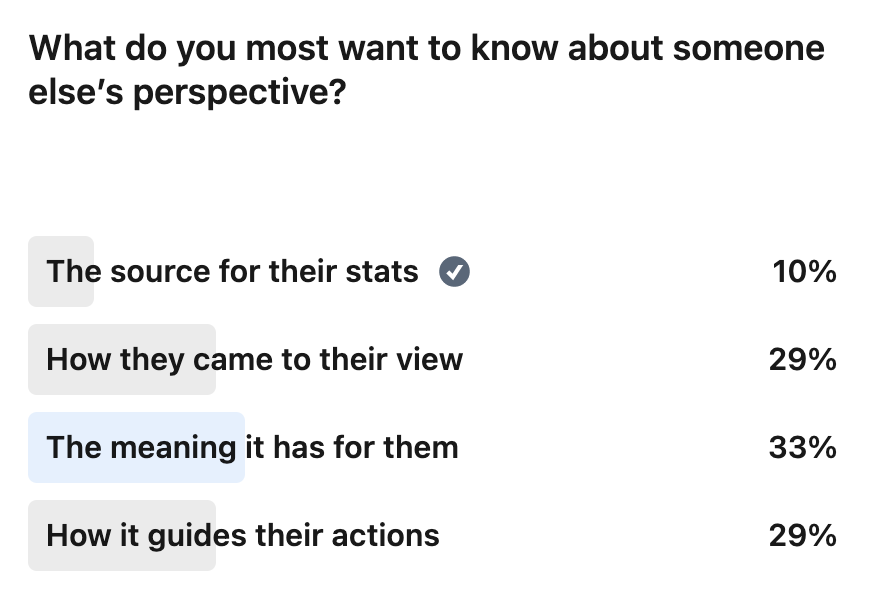People ask me, “how can I have a conversation with someone about politics when we can’t even agree on facts?” It’s true, people on the political Left and Right tend to pay attention to and trust different news sources, which can lead to conflicting knowledge about an issue. In this sort of situation, you might find yourself referencing research and news articles, trying to correct misinformation, and feeling exasperated when the other person points to their data and analyses from sources you see as untrustworthy and biased.
I typically encourage people to shift away from competing facts and to focus instead on how the other person formed their views, the meaning that the information has for them, and how it guides their actions. This is not to say that facts don’t matter; it is simply that exchanging factual information will not help people achieve their goals for dialogue.
When I ask people what they hope to achieve by talking with someone across the political divide, I reliably hear that people want to maintain or repair a relationship, persuade or convince, find common ground, or gain some insight into other people. Sharing facts that contrast with what someone believes to be true will not help to accomplish any of these goals; in fact, it is more likely to push someone away than to change their minds or foster closeness.
I was curious to know what other people said they want to hear from others, so I did a LinkedIn poll.

It turns out that, indeed, the source for statistics is not what people most want to hear about. They want to understand what the stats mean to the other person and what shapes their views and actions. Rather than asking, “where did you get that information?” we should be saying, “it sounds like that study had a powerful impact on you – what made it so important for you?”
What helps move people toward their goals for dialogue is a conversation that promotes connection and understanding. How can we do that?
- We can cultivate these qualities by inquiring about what the information means to someone rather than challenging the information itself.
- We can talk about how our views changed over time instead of focusing on the data that supports what we currently believe.
- We can discuss how our choices relate to analyses of the news; not make assumptions about what actions people will take based on their stance.
All of this requires us to reveal our humanity, which can feel more vulnerable than debating facts. It may be uncomfortable to lay down our data and share more of ourselves, but it is so much more rewarding.
very helpful!